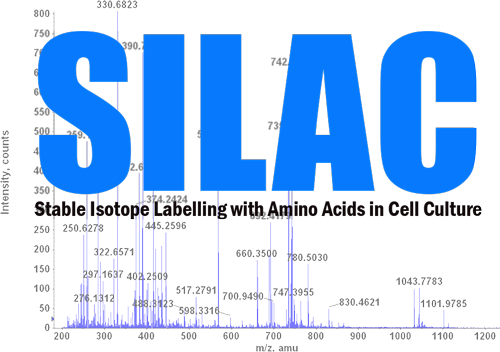SILAC (Stable Isotope Labeling with Amino Acids in Cell Culture)
Quantitative proteomics has been a cutting-edge and demanding field in biological research for the past few decades. With the advancement of technology, MS (Mass spectrometry) based methods have become strikingly helpful tools, which utilize the mass-to-charge ratio of the fragmented compound in proportion with its ionic abundance. MS provides the result as a plot of ionic abundance of a compound versus its mass-to-charge ratio, which subsequently provides information about the nature, possible structure and properties of the compound. This compound could be any protein, posttranslational modification, bioactive molecules etc. The MS responses of proteolytic peptides may discreetly vary owing to their non-uniform physicochemical properties for example, hydrophobicity, dipole moment, size, charge, mass etc. Hence it becomes a strenuous exercise to accurately quantify the changes in the relative abundance of a biomolecule between different test samples in the same MS analysis. To solve this pitfall, a new modification has been introduced in the general MS protocol known as SILAC (Stable Isotope Labeling with Amino Acids in Cell Culture), which allows insertion of stable isotopes of amino acids into the proteins or peptides. SILAC enables relative and comparable quantification of these molecules from different test samples in the same MS run, which eventually minimize the false variability of the results arising from sample injection and ion suppression contributed by MS instruments in different runs.






